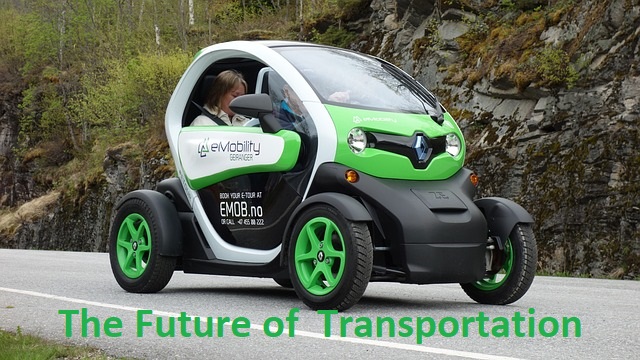The Future of Transportation: Benefits and Challenges
Are you looking for a social science project on “The future of Transportation”? In the present world, battery vehicles have arisen as a promising answer. More and more people are looking for battery vehicles as the future transport. Moreover, it will reduce the use of fossil fuels and protect our environment. These vehicles are going to be eco-friendly. Students also need to know the importance of battery-powered vehicles. Therefore, social science teachers ask to write a project on “The future of Transportation”. In this blog, we will guide you and try to provide materials related to “The future of Transportation”. Moreover, you will also find the advantages and disadvantages of battery vehicles and related content that can be utilized for our project.
The Future of Transportation: Benefits and Challenges
Advantages of Battery-Powered Vehicles
Effect on Environment:
Firstly, one of the essential benefits of battery vehicles is their negligible effect on the climate.
Battery vehicles don’t radiate hurtful poisons like carbon monoxide and nitrogen oxides.
By shifting to battery vehicles, we can fundamentally lessen air contamination and battle environmental change.
Cost Effective:
Battery vehicles might have a higher forthright expense contrasted with conventional vehicles.
But, they offer huge expense reserve funds over the long run.
Moreover, these battery vehicles will also require less maintenance and have lower fuel costs,
All this together makes them the future of transport.
Energy Productive:
Battery vehicles are more energy-productive compared with fuel-controlled vehicles.
This is because electric engines convert a greater amount of the energy from the batteries into movement.
This will bring about higher eco-friendliness and diminished energy utilization.
Less Sound Pollution:
Battery vehicles are calmer than conventional vehicles.
Therefore, it is an ideal decision for metropolitan regions where commotion contamination is a worry.
The quiet activity of battery vehicles likewise gives a more serene driving experience for the driver and travelers.
The Future of Transportation: Benefits and Challenges
Challenges of Battery Vehicles:
Restricted Reach:
Firstly, the principal difficulty of battery vehicles is their restricted reach.
Moreover, they have a more limited range contrasted with conventional vehicles.
This can be a big challenge for drivers who need to regularly travel significant distances.
Charging Points:
Secondly, one more test of battery vehicles is the absence of a charging point.
Of course, charging stations are being introduced all over the planet, but they are as yet insufficient.
Therefore, this can be an obstruction for purchasers who are worried about finding a charging station.
Battery Corruption:
Thirdly, battery corruption is a typical issue with battery vehicles.
After some time, the limit of the battery diminishes.
This leads to prompting decreased driving reach and execution.
Therefore, this can be a worry for purchasers who need to guarantee that their vehicle will keep up with its exhibition over an extensive stretch.
Forthright Expense:
Fourthly, while battery vehicles offer long haul cost reserve funds, they frequently have a higher forthright expense contrasted with conventional vehicles.
Therefore, this can also be a challenge for buyers who are on a strict financial plan.
The Future of Transportation: Benefits and Challenges
Impact of Battery Vehicles on the Climate
Firstly, rising awareness about the impeding impacts of petroleum derivatives on the climate.
There is an extensive shift towards additional manageable and harmless ecosystem methods of transportation.
One such arrangement that has acquired notoriety lately is battery-fueled vehicles.
While these vehicles offer various advantages, they likewise severely affect the climate, both positive and negative.
Protect Ozone-depletion:
One of the major advantages of battery vehicles is their capacity to lessen ozone depletion.
Not at all like conventional gas-fueled vehicles, battery vehicles produce no fume discharges.
Therefore, they don’t add to air contamination or environmental change.
By progressing to battery vehicles, we can fundamentally diminish our carbon impression.
This will further, assist in alleviating the impacts of a dangerous atmospheric deviation.
Decrease air Pollution:
Battery vehicles will help in diminishing air contamination.
Fuel-controlled vehicles emanate hurtful poisons, for example, nitrogen oxides and particulate matter.
Such poisons can have serious well-being ramifications for both people and the climate.
Therefore, Battery vehicles will produce no tailpipe outflows, bringing about cleaner air and a better climate for all.
Mining and water contamination:
Batter vehicles do not cause air pollution. But, they additionally adversely affect the climate.
The development of batteries for electric vehicles requires critical measures of energy and assets,
The two important components are earth metals and lithium.
Mining and handling these materials can lead to water contamination.
Moreover, the removal of utilized batteries can represent a test about reusing and squandering the board.
Energy Effective:
Battery vehicles are by and large more energy-effective than gas-controlled vehicles.
They have higher efficiency and lower working expenses.
This can assist with reducing energy utilization and dependence on petroleum products.
Therefore, it is vital to consider the wellspring of power used to charge these vehicles.
As the power age can likewise have ecological effects, contingent upon the blend of sustainable and non-inexhaustible sources.
Land use and foundation:
Changes to the framework and land use will be expected due to the inescapable reception of batter vehicles.
More charging stations need to be built for the growing number of vehicles on the road.
This can further have an impact on natural environments and landscapes.
Moreover, the production and disposal of batteries will also require land and resources.
This can have a further impact on the environment.
The Future of Transportation: Benefits and Challenges
Conclusion:
To conclude, battery vehicles offer various ecological advantages. It protects against Ozone depletion and air contamination. They likewise have a few adverse consequences, like energy and asset utilization, and changes to framework and land use. It is important to think about these elements towards a feasible transportation framework that limits its effect on the climate.
Through supporting strategies that advance cleaner and greener methods of transportation, we can assist with making a more economical future. Battery vehicles With zero emanations, lower working expenses, and government impetuses driving the market forward,
it’s inevitable before we see a far-reaching shift toward electric vehicles. In addition to the fact that they are better for the climate, however, they likewise offer a smoother, calmer ride and require less support than customary internal combustion vehicles.
All in all, battery vehicles can upset the transportation business and diminish our carbon impression. While there are provokes that should be survived, the advantages of battery vehicles far offset the downsides. By instructing ourselves and embracing this innovation, we can move towards a more economical future for a long time into the future.





0 Comments